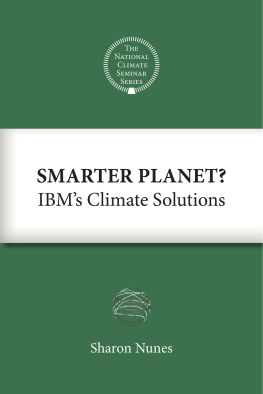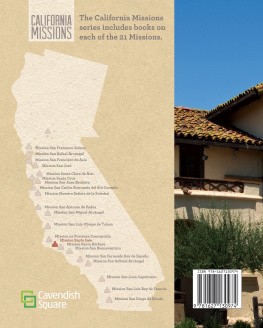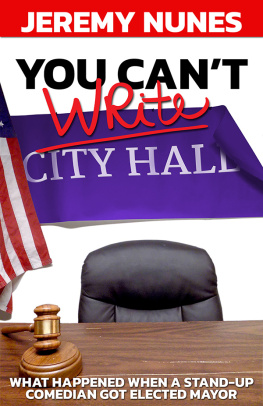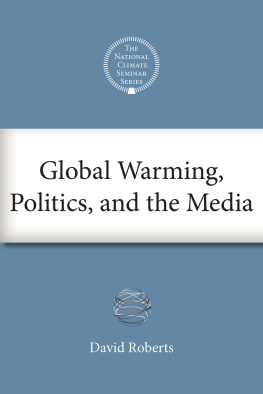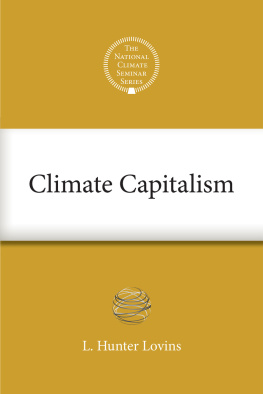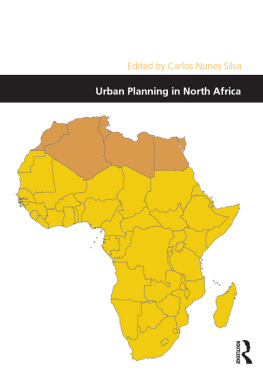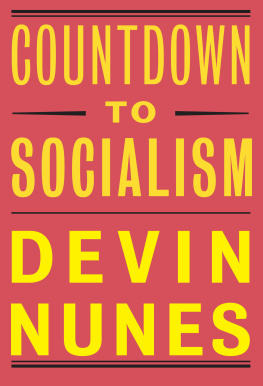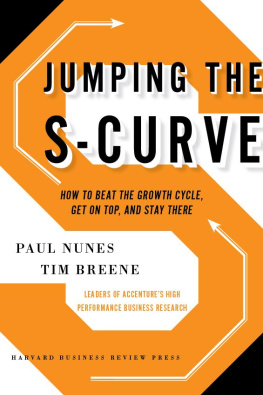The National Climate Seminar
Smarter Planet?
IBMs Climate Solutions

Sharon Nunes

Washington | Covelo | London
Copyright 2012 Island Press
All rights reserved under International and Pan-American Copyright Conventions. No part of this book may be reproduced in any form or by any means without permission in writing from the publisher: Island Press, 2000 M Street, NW, Suite 650, Washington, DC 20036.
ISLAND PRESS is a trademark of the Center for Resource Economics.
Cover design by Maureen Gately
Cover image khalus, iStockphoto.com
Introduction
On October 19, 2011, Sharon Nunes participated in The National Climate Seminar, a series of webinars sponsored by Bard Colleges Center for Environmental Policy. The online seminars provide a forum for leading scientists, writers, and other experts to talk about critical issues regarding climate change. The series also opens a public conversation, inviting participants to ask questions and contribute their own thoughts.
Sharon Nunes is Vice President of the Smarter Cities Strategy & Solutions program at IBM, working with municipal leaders to manage urban systems more efficiently. In her lecture, Nunes discussed the ability of smart grids and other information technology to save energy, time, and costs. Questions following the lecture focused on the barriers to implementing these systems, and Nunes addressed ongoing challenges as well as successful programs.
What follows is an edited version of Nunes talk and the subsequent question-and-answer session. While some material has been cut and some language modified for clarity, the intention was to retain the substance of the original discussion.
Smarter Planet?
IBMs Climate Solutions
Seminar by Sharon Nunes
I was really happy to hear an overview of the National Climate Seminar because what Ive realized over the last five years, while working on IBMs Big Green Innovation program, is that it takes many cogs to turn these wheels. It takes hard technology and information technology, chemistry and biology, psychology and sociology, and policy. All of those elements are critical to make this a successful endeavorto focus on how we can improve world systems. That is essentially what IBM has been working on.
Let me give you a snapshot of what weve been doing in the area of smarter cities because I believe that is a surrogate for the issues raised in the seminar series. A couple of weeks ago, Hunter Lovins gave a seminar in the series and made some really terrific comments that segue into some of my points.
She referenced the need for cities to use technology to improve their operations, talking specifically about the ways that information and technology can be used to make buildings run more efficiently. IBM has been working on these issues for about eight or nine years, and about five years ago we coalesced these activities into a program we call Smarter Planet.
When people think about IBM, they typically think about large mainframe computers or maybe about our semi-conductor technology. But in essence, more than half of our company is focused on consulting, services, and software development. Over the last five years, our Smarter Planet and Smarter Cities programs have looked at how our information technology can be used to help buildings operate more efficiently: to help city leaders manage disparate urban systems more efficiently.
Ill give you a few examples. Part of our philosophy is to help save money in running cities around the globe; were working in developing countries as well as in the US and Western Europe. Inefficiencies in cities are draining a lot of very limited financial resources. The financial crisis has really driven that fact home to governments around the world.
We work with local, state, regional, and national governments, and with international organizations. Part of the program is to look at inefficiencies in operations, working with city leaders to help integrate operations and to share information. In many cases, the information is still in a spreadsheet on someones personal computer, not shared with other people or accessible on the internet. In some cases, its still in paper files in drawers. Were trying to help leaders move towards an IP-based system: an IP-based world where you can share information, coalesce that information, and look at synergies. Analytical software can help identify common patterns, operational inefficiencies, and potential improvements.
Let me give you a couple of references that I think might be interesting for people to explore on their own. One is a project that weve developed over the last year and a half called City Forward. You can go directly to the program website at http://cityforward.org or search the IBM website. It gathers a lot of public information from around the world about city operations and provides a front end where you can conduct searches. You can ask, Which city uses the most water? Or Which one is looking at energy efficiency?
All this information is available from public databases, but we have put it all together, organized it around geographic locales, and made it searchable. You can also add your own information. Some of the cities where we work are using it as a benchmark so that they can see how theyre performing compared to other cities around the world. So its a pretty neat website; were growing every day as more and more cities start to get involved and use it as a resource.
Another project that weve developed is a game called City One. (The website is IBM.com/cityone .) Were encouraging teachers to use it in their classrooms for students of all ages. Each player has a role: youre a water manager, youre an electricity-grid manager, youre a retail business owner, or youre a financial expert. You have to make decisions that impact how the citizens will behave in the city, or how happy or how unhappy they will be with their municipal systems. So if your water budget is the same but your population increases over the next five years, what sort of decisions will you make to maintain the happiness of the citizens in your city? It really helps you to understand the trade-offs that a city manager has to make.
These programs arent necessarily what people think of when they think of IBM. But City Forward and City One both use information technology for the purpose of education.
To think about making cities smarter, you have to consider demographics, which have changed significantly over the last one hundred years. In 1900, thirteen percent of the worlds population lived in cities. That percentage grew through the twentieth century, and by 2007, more than half of the worlds population was living in cities. The number is continuing to grow.
With half of the global population living in cities, cities are consuming about seventy percent of the worlds energy. Projections estimate that by 2050 more than three-quarters of the world population will live in cities. Right now were adding, on average, a city the size of New York City about once every week to the worlds population. There are infrastructure demands both in new cities growing up in developing countries and in established cities where many mayors report ten to twenty percent growth. People are moving to cities because of opportunities for jobs and education, because of the cultural life, because of easy transportation. In some cases, living in cities is less expensive and often people feel they have a much greener footprint.
But the result is an incredible demand on infrastructureon water, transportation, energy, and health care. For the most part, all of those systems have grown up in cities working as very independent entities. As cities become more and more complex, city leaders are realizing that a lot of the infrastructure that was often built, at least in existing cities, fifty to one hundred or more years ago, is aging. It hasnt been maintained and is very inefficient. Decisions were made to build infrastructure in completely separate silos, completely separate platforms. If city leaders can understand whats happening in all of those separate areas, in an integrated way, they can make much better decisions about the city operations and potentially save money.
Next page
